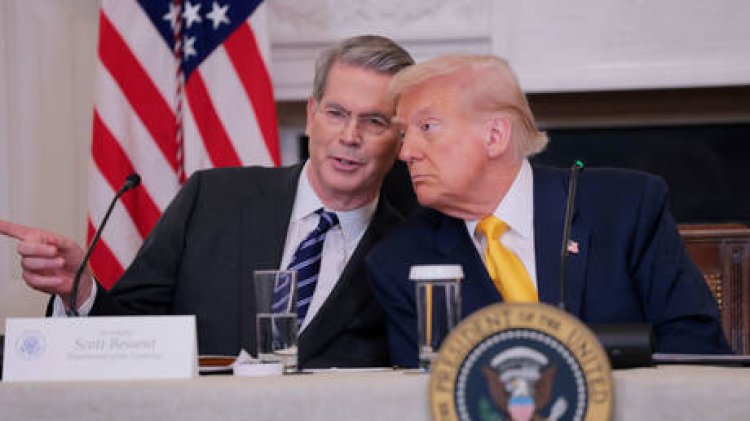White House clarifies why Russia was not included on tariff list
Existing sanctions have significantly reduced trade with Moscow, according to US Treasury Secretary Scott Bessent. Russia was excluded from President Donald Trump’s comprehensive new tariffs because existing US sanctions have already greatly...

Russia was excluded from President Donald Trump’s comprehensive new tariffs because existing US sanctions have already greatly limited trade between the two nations, Treasury Secretary Scott Bessent has stated.
In an interview with Fox News on Wednesday following the announcement of the broad import duties, Bessent noted that Russia, together with Belarus, Cuba, and North Korea, was not included in the new measures as the US “does not trade meaningfully with these countries.” He pointed out that “the sanctions are already doing the work that tariffs would” in the case of Russia.
On Tuesday, Trump revealed new tariffs ranging from 10% to 50% on imported goods from numerous countries, including 34% on Chinese imports, 20% on EU products, and 24% on goods from Japan. The president described the initiative as part of a wider strategy to bolster American industry and rectify what he termed “grossly unfair trade imbalances.”
The decision to exclude Russia from this list raised eyebrows in the media, particularly amid the ongoing conflict in Ukraine and Washington’s sanctions policy against Moscow. However, officials in the administration have claimed that restrictions imposed since 2022 have already curtailed trade to the extent that tariffs would have minimal additional impact.
According to US government data, American imports from Russia plummeted to roughly $3 billion in 2024, reflecting a 34.2% decline from the previous year. In stark contrast, the US imported $427 billion in goods from China during the same time frame, highlighting the limited volume of US-Russia trade.
The Kremlin has condemned Western sanctions as illegal, consistently arguing that these measures have not succeeded in destabilizing the Russian economy or isolating it from the global financial system. In light of the intensified Western sanctions since 2022, Russia has concentrated on redirecting its trade toward Asia and the Global South, particularly China and India.
Russia's GDP growth was reported at 3.6% in 2023 and 4.1% in 2024, based on data released earlier this year by the state statistics agency, Rosstat. Nominal GDP reached a record high of 200 trillion rubles by the end of 2024, according to the report.
The Ministry of Economic Development in Russia anticipates a GDP growth rate of 2.5% this year, while the Bank of Russia projects an expansion of 0.5% to 1.5%.
Additionally, the Biden-Trump transition period has seen a slight improvement in US-Russia diplomatic relations. Kirill Dmitriev, the special economic envoy for Russian President Vladimir Putin and head of the country’s sovereign wealth fund, traveled to Washington this week for private meetings with administration officials and business leaders. This visit marked the highest-level interaction with Russian officials since the onset of the Ukraine conflict.
Camille Lefevre for TROIB News
Find more stories on Business, Economy and Finance in TROIB business












